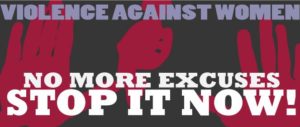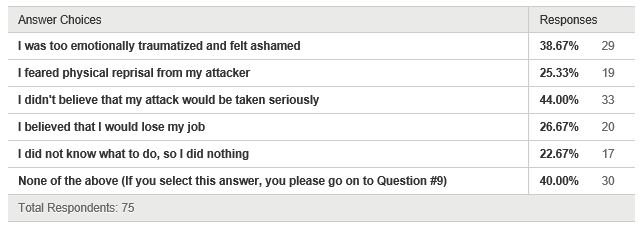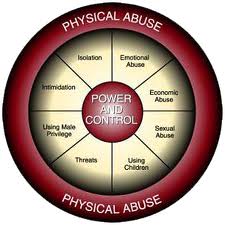By: Robert Avsec, Executive Fire Officer
I, for one, am growing very tired of words like, “wrestling, grappling, struggling, etc.”, being used to describe the  misogynist attitudes that still exist in too many fire departments four decades after some of the first female firefighters came on the job.
misogynist attitudes that still exist in too many fire departments four decades after some of the first female firefighters came on the job.
The outright–and in many cases open–harassment of those women and “no girls allowed” attitudes were present then and still present today, two generations later. So I must agree with fellow blogger, retired chief office, and attorney, Curt Varone, who wrote on LinkedIn:
What is troubling to me is that we continue to apply technical solutions to an adaptive challenge and lament why it doesn’t work. I have 40+ years-worth of sexual harassment lawsuits in my database… and the allegations in the 1970s are virtually identical with those filed in 2016. How can that be? Some write it off as “boys will be boys”… some say yes… that is exactly the problem… “boys being boys”… HR will continue with their technical solution of admonishing folks to follow the policy and putting folks to sleep with “sensitivity training”; attorneys will continue with their technical solution, which is to sue/defend… and we get no closer to the solution… Adaptive challenges require transformational leadership… it goes beyond blaming, finger pointing, chest thumping. Or we can just keep “kicking the can down the road.” (Comments to his post from his blog, Fire Law).
See Related: We Don’t Need Diversity Training: We Need More Leadership Training
And yes, there are cases of males being subjected to harassment (and even sexual assault as was the case last year when a volunteer firefighter in Texas was sodomized by several of his peers), but the numbers pale in comparison to what’s continuing to happen to women in the fire service. And even those numbers for women are difficult to have trust in because too many cases of sexual assault and rape go unreported because the affected women are ashamed, feel nobody will take the complaint seriously, or the perpetrator is a superior.
My On-line Survey
 In April 2014, I created an on-line survey using Survey Monkey that asked the question entitled, Sexual Assault and Rape Against Women in the Fire Service, which I widely disseminated across social media using LinkedIn, Facebook, and Twitter. Though the survey only received 89 cases where the respondent stated they were a victim of sexual assault or rape, I found those responses to be very troubling.
In April 2014, I created an on-line survey using Survey Monkey that asked the question entitled, Sexual Assault and Rape Against Women in the Fire Service, which I widely disseminated across social media using LinkedIn, Facebook, and Twitter. Though the survey only received 89 cases where the respondent stated they were a victim of sexual assault or rape, I found those responses to be very troubling.
- Sixty-nine (74.5%) were still serving in the department with the perpetrator;
- The respondents were evenly divided among career, volunteer and combination staffed departments’
- Fifty-seven (63.8%) reported being with their department less than 10 years;
- Eighty-five (95.5%) reported that they had been sexually assaulted by someone in their department;
- Thirty-three (37.5%) reported that they had been raped by someone in their department; and
- Sixty-four (62.9%) reported that the perpetrator of their sexual assault or rape was a first-line supervisor or senior officer.
See Related: Definitions of Sexual Assault and Rape Used for Survey
Despite years of fire departments and local governments implementing those “tactical solutions” mentioned above by Verone, my survey results found some equally disturbing results for why the 59 (67.8%) affected women did not report their sexual assault or rape. (The other 28 (32.2% reported their attack to: their first-line supervisor; a chief officer; local law enforcement; local government HRM or Personnel; or state Equal Employment Opportunity Commission. Two respondents skipped the question).
So why didn’t those 59 victims report their attack? Take a look for yourself:

So what happens when a woman firefighter does report their sexual assault or rape?
Here are just a few selections from the written comments contained in the survey results:
“Our fire chief was convicted of three counts of sexual assault (one count each for three different women in the

Rape typically isn’t about sex. It’s about exerting power and control over the victim.
department, one of whom he did attempt to rape). He is currently appealing his conviction.”
“I did not report [my attack]. Another [person] did. I was reprimanded for not reporting the incident. I was then called “crazy,” a “liar,” blackballed, and unable to obtain another job in the fire service.”
“The final outcome was that the chief looking into and stated that the officers would not do anything like that.”
“I was suspended from that station by the County Chief and forced to transfer to a different one as my punishment, and banned from returning as a member there. The District Chief who assaulted me was not punished. Now I’m labeled throughout the county as a liar and a whore.”
“I still haven’t reported it…I’m crying right now just thinking about it. He is still my supervisor but should be retiring any year now.”
What does this picture say about the culture in those departments? Where was the fire service brotHERhood that we all so proudly boast about?
Just as importantly, in how many other fire departments is there a similar lack of brotherhood?
See Related Posts
Male Privilege in the Fire Service
Diversity: The Elephant in the Room
Being a Firefighter Shouldn’t Mean Getting Raped
 Fire & EMS Leader Pro The job of old firefighters is to teach young firefighters how to become old firefighters!
Fire & EMS Leader Pro The job of old firefighters is to teach young firefighters how to become old firefighters!